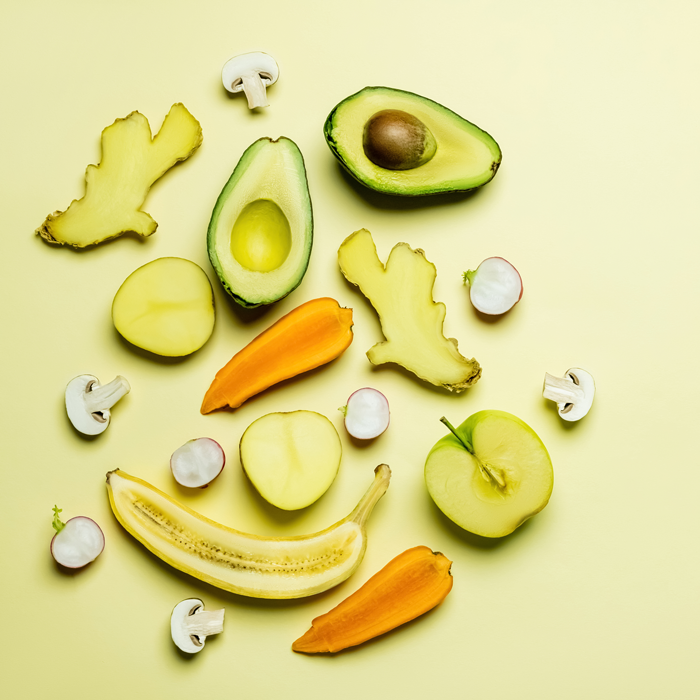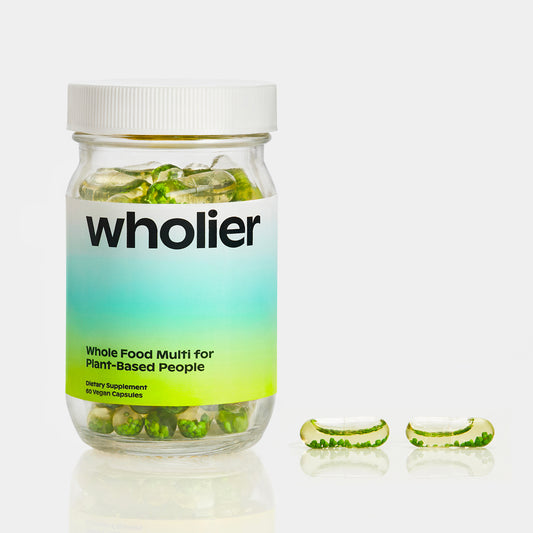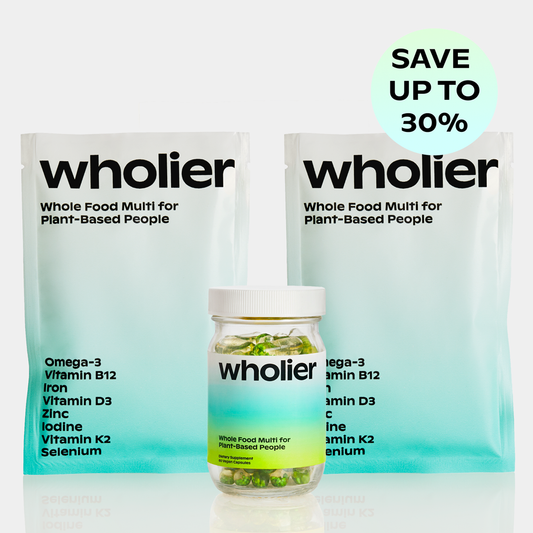
The Iron Question: Should Vegetarians Supplement?
Iron, a life-essential mineral, plays a crucial role in maintaining our body's overall health. One of its main roles is forming hemoglobin, a protein in our red blood cells that transports oxygen from the lungs to other body parts(1). Additionally, iron contributes to the normal function of our immune system, cognitive performance, and energy metabolism(2). So, keeping up with iron intake becomes a matter of prime importance.
What Are the Common Sources of Iron?
Iron is present in our diet in two forms: heme and non-heme. Heme iron, found in animal-based foods like meat, poultry, and fish, is easily absorbed by our bodies(3). On the other hand, non-heme iron is present in plant-based foods such as leafy greens, legumes, and whole grains. However, our bodies find it more challenging to absorb non-heme iron, making it less bioavailable(4).
What Are the Signs of Iron Deficiency?
Iron deficiency often results in a condition known as anemia, where the body lacks enough healthy red blood cells to carry adequate oxygen to its tissues. This deficiency manifests through symptoms such as fatigue, weakness, pale skin, cold hands and feet, and difficulty concentrating(5). While anyone can develop iron deficiency anemia, people following vegetarian and vegan diets are at higher risk, primarily because of the lower bioavailability of non-heme iron(6).
Is Iron Deficiency More Common in Vegetarians?
Recent scientific research indicates that vegetarians might be more prone to iron deficiency compared to non-vegetarians. A study involving premenopausal women revealed that vegetarians had lower serum ferritin levels, a key indicator of total body iron stores, compared to non-vegetarians(7). Another factor contributing to this increased risk among vegetarians is the prevalence of phytic acid in plant-based diets. Phytic acid, found abundantly in legumes and whole grains, inhibits iron absorption(8).
Interestingly, women, especially those in their premenopausal stage, are at a higher risk of iron deficiency due to the iron loss during menstruation(9).
Should Vegetarians Take Iron Supplements?
Given the increased risk of iron deficiency in vegetarians, should they consider iron supplementation? The answer, according to scientific evidence, leans towards a 'yes'. A study demonstrated that iron supplementation improved iron status in vegetarian women with lower iron stores(10). Another study echoed these results, revealing that daily iron supplementation effectively improved iron status in female distance runners following a vegetarian diet(11).
However, iron supplementation should not be started without medical advice, as too much iron can lead to health complications such as iron overload and organ damage(12).
What Are the Best Forms of Iron for Supplementation?
When it comes to iron supplements, not all forms are created equal. Iron supplements are available in various forms, including ferrous sulfate, ferrous fumarate, ferrous gluconate, and iron bisglycinate.
Ferrous sulfate is commonly prescribed but often associated with gastrointestinal side effects(13). Ferrous fumarate and ferrous gluconate are other options, but they might not offer superior benefits(14).
On the other hand, iron bisglycinate, a chelated form of iron, has been found to be more bioavailable and less likely to cause gastrointestinal side effects(15). A study comparing the bioavailability of different iron supplements found that iron bisglycinate was more than twice as absorbable as other forms(16).
What is the Recommended Iron Dosage for Vegetarians?
The recommended iron intake varies depending on age, sex, and life stage. However, vegetarians might need 1.8 times more iron than non-vegetarians because of the lower bioavailability of non-heme iron(17). For adult men and postmenopausal women, the daily intake recommendation is 14mg, while for premenopausal women, it's set at 33mg(18).
Overall, while a well-planned vegetarian diet can provide adequate nutrients, it may be challenging for some individuals, especially premenopausal women, to meet their iron needs through diet alone. In such cases, iron supplements, particularly in the form of iron bisglycinate, can be a practical approach to maintaining optimal iron levels.
Sources:
(1) "Iron: Fact Sheet for Health Professionals." National Institutes of Health Office of Dietary Supplements, June 3, 2020. (https://ods.od.nih.gov/factsheets/Iron-HealthProfessional/)
(2) Beard, John L. "Iron biology in immune function, muscle metabolism and neuronal functioning." The Journal of nutrition 131.2 (2001): 568S-580S.
(3) Hurrell, Richard, and Ines Egli. "Iron bioavailability and dietary reference values." The American journal of clinical nutrition 91.5 (2010): 1461S-1467S.
(4) Lynch, Sean R., and James D. Cook. "Interaction of vitamin C and iron." Annals of the New York Academy of Sciences 355.1 (1980): 32-44.
(5) "Iron deficiency anemia." Mayo Clinic, March 18, 2020. (https://www.mayoclinic.org/diseases-conditions/iron-deficiency-anemia/symptoms-causes/syc-20355034)
(6) Pawlak, Roman, et al. "Iron status of vegetarian adults: a review of literature." American journal of lifestyle medicine 12.6 (2018): 486-498.
(7) Hunt, Janet R. "Bioavailability of iron, zinc, and other trace minerals from vegetarian diets." The American journal of clinical nutrition 78.3 (2003): 633S-639S.
(8) Hurrell, Richard, et al. "Inhibition of non-haem iron absorption in man by polyphenolic-containing beverages." British Journal of Nutrition 81.4 (1999): 289-295.
(9) Hallberg, L., et al. "Bioavailability in man of iron in human milk and cow's milk in relation to their calcium contents." Pediatrics 63.3 (1979): 325-331.
(10) Ball, Madeleine J., and Madeleine A. Bartlett. "Dietary intake and iron status of Australian vegetarian women." The American journal of clinical nutrition 70.3 (1999): 353-358.
(11) Knez, Wade L., et al. "Iron status in female endurance runners and in non-athletes following a vegetarian diet." Annals of Nutrition and Metabolism 38.2 (1994): 59-66.
(12) "Iron: Fact Sheet for Consumers." National Institutes of Health Office of Dietary Supplements, June 24, 2020. (https://ods.od.nih.gov/factsheets/Iron-Consumer/)
(13) Hallberg, L., et al. "Prevention of iron deficiency anemia in adolescent girls." The Journal of nutrition 131.2 (2001): 733S-737S.
(14) Kim, Kyunghee, and Won O. Song. "Absorption and utilization of iron from ferrous bisglycinate chelate in rats." Journal of nutritional science and vitaminology 53.6 (2007): 564-568.
(15) Milman, N., et al. "Iron status markers in 224 children aged 12-36 months: a Danish iron supplementation study." Archives of disease in childhood 101.5 (2016): 456-462.





